WASH Access for All: Inclusive Transformation of WASH in Puskesmas in Lampung Province
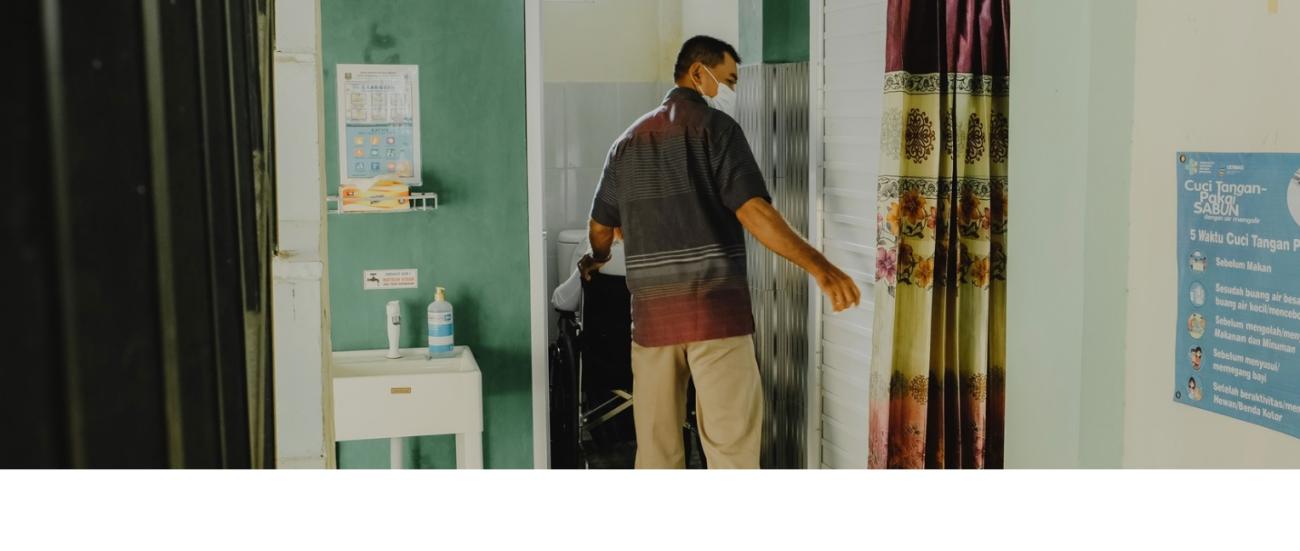
Siti Chodijah still remembers how most of her friends with disabilities hesitated to go to primary health care centres (Puskesmas).
“It was very difficult for us. Most Puskesmas in Lampung are not equipped with ramps, so persons in wheelchairs must be carried. It was also very hard to access toilets in Puskesmas, with their narrow doors and no railings for support,” said Ibu Siti, resident of Bandar Lampung. “If sick, we would usually choose to stay at home instead of getting health care in a Puskesmas.”
Siti Chodijah, who goes by the nickname Susi and works as a seamstress, has a slightly deformed left foot due to childhood polio. She is one of approximately 405,000 people with disabilities in Lampung. They constitute about 4.58% of Lampung’s population of 8.85 million.
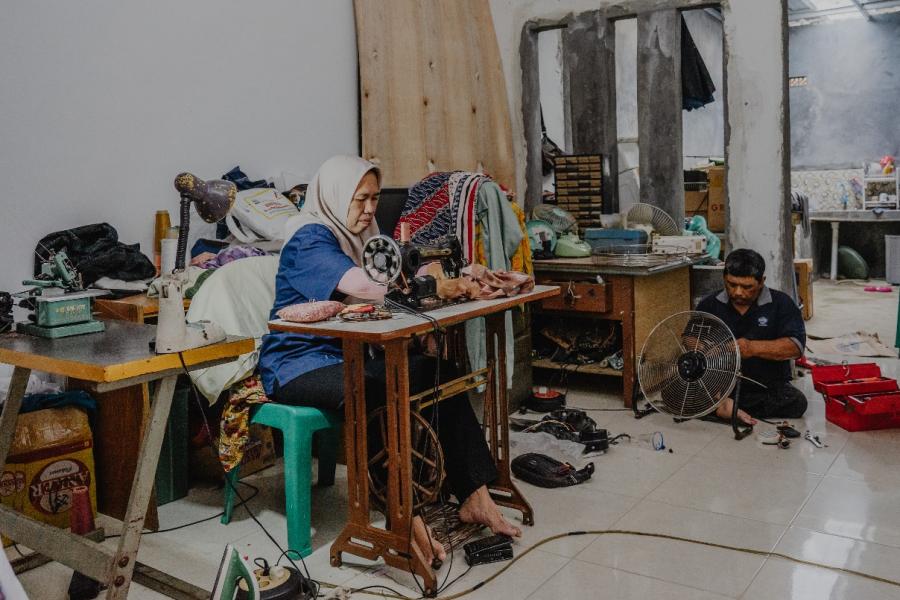
To advance the lives of fellow women with disabilities, she joined the Indonesian Women with Disabilities Association (HWDI) in 2014. It was through HWDI and its partner, Way Seputih Conservation Foundation (YKWS), that she joined the collective effort in 2021 to transform Puskesmas into inclusive facilities with water, sanitation and hygiene (WASH) access for all, including for people with disabilities.
“I became a member of the WASH task force in Puskesmas Pasar Ambon. Along with other members, I gave feedback on how the WASH facilities should serve everyone. Adding ramps, widening doors and providing handrails in toilets means providing access for us. Such change will also be useful for the elderly and pregnant women,” said Susi.
From trainings to real change
In 2020, Annisa Pramesti Putri, WASH Knowledge Management Officer of SNV Indonesia, participated in one of the Water and Sanitation for Health Facility Improvement Tool (WASH FIT) trainings conducted by WHO Indonesia. WASH FIT is a risk-based management tool for health care facilities, covering key aspects of water, sanitation, hand hygiene, environmental cleaning, health care waste management and selected aspects of energy, building and facility management.
Ministry of Health (MoH) officials, university academics, as well as representatives of the Province Health Office, United Nations agencies and non-governmental organizations participated in the training sessions.
“SNV did a research and pilot for WASH improvement in 2020 and at the same time there was the WASH FIT Training of Trainers. After the four-days training, we adapted the tools and implemented the knowledge in three cities: Bandar Lampung, Metro and Tasikmalaya,” Annisa said.
According to her, SNV Indonesia transferred their knowledge to their local partners and assisted the Puskesmas to improve WASH services. In cities of Bandar Lampung and Metro, SNV Indonesia partnered with YKWS. Nine Puskesmas – five in Bandar Lampung and four in Metro – were supported to transform their WASH quality to be more inclusive and gender responsive.
WHO continued their support and technical assistance, providing inputs in SNV Indonesia and YKWS training sessions for Lampung participants.
With the support from City Governments, the nine Puskesmas started to improve their facilities to be more inclusive and gender responsive. Puskesmas Margorejo in Metro City added ramps in the entrance and toilets. Toilet doors were widened from 80 to 100 cm to allow wheelchairs to enter and exit more easily. Toilets were equipped with extra curtains to enhance users’ privacy.
Meanwhile, the task force in Puskesmas Kedaton decided to provide menstrual hygiene management in the female toilet. They thought it important to meet the demand for menstrual hygiene products and ensure menstrual health and bleeding management, particularly among adolescents and postpartum women.
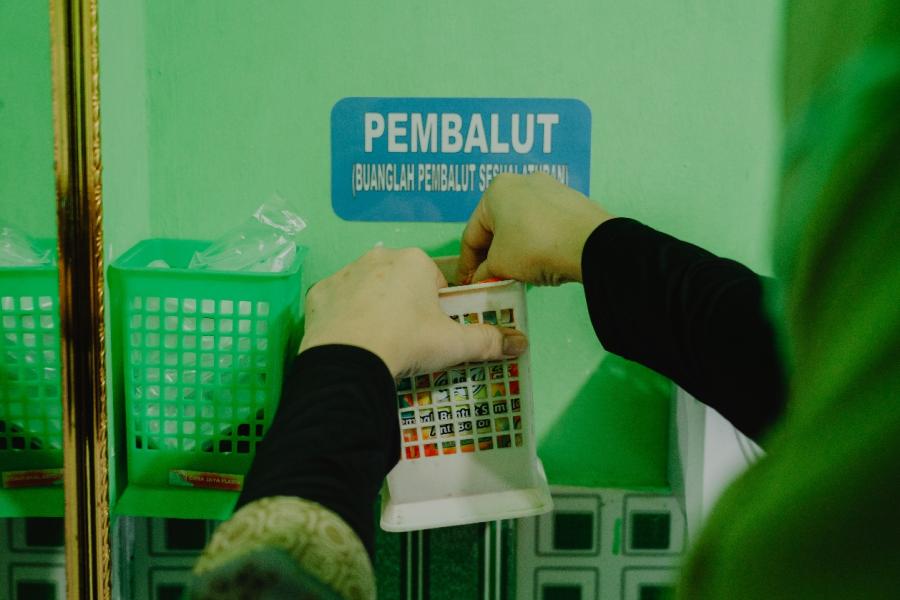
The Puskesmas also changed their registration process and waiting room to prioritize people with disabilities, along with pregnant women and elderly patients.
“We have plenty of patients with disabilities, elderly and pregnant women. They have the same rights to healthcare services, and we prioritize the more vulnerable population groups to be served in Puskesmas,” said Rosnilam, Head of the Puskesmas Margorejo.
Lessons from the process
From the two-year process of collective efforts, stakeholders in Lampung gained plenty of lessons learned. Annisa said her organization identified that involvement of various stakeholders in WASH task forces enabled a mutual feedback mechanism. The task forces’ members were representatives of people with disabilities, women, youth, and religious organizations who live in the surrounding area of each Puskesmas.
This means improvements in Puskesmas are based on actual needs of the beneficiaries. The Puskesmas can gather direct feedback from its users and in parallel feel the responsibility to fulfil their duty to the people.
“Also important is support from the city governments and mayors. Once they have the same vision, everyone from the top to the bottom will act together,” she said.
YKWS’ participatory approach triggers a deep sense of belonging to Puskesmas management as YKWS facilitators involved them at every step of the programme.
“For example, in discussing inclusive WASH indicators, we did not tell them what to do. We asked them to collectively give feedback and decide indicators to be implemented in their Puskesmas,” said Yulian Gressando, Monitoring, Evaluation, Accountability, and Learning Officer of YKWS.
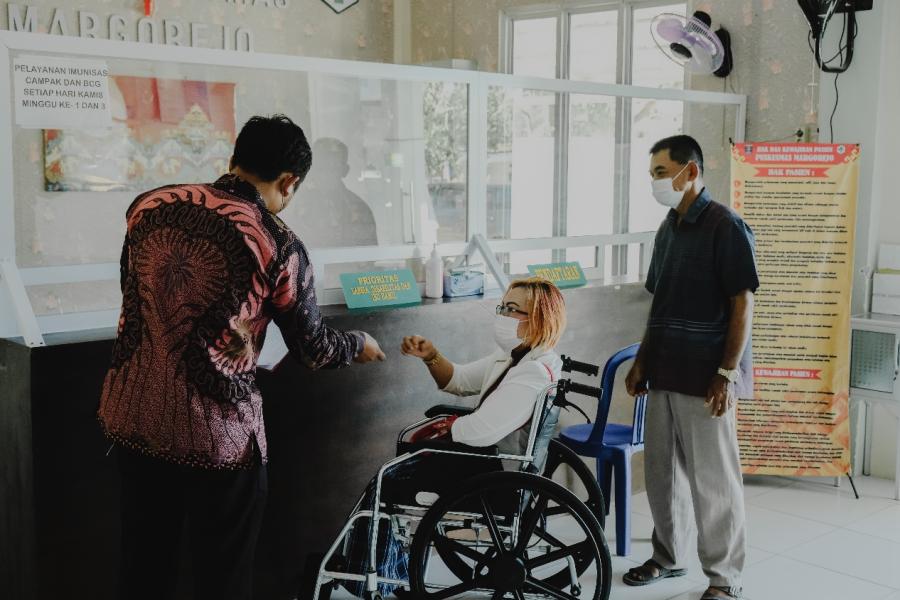
This makes Puskesmas management enthusiastic to improve their services even more. In July 2022, representatives of the nine Puskesmas gathered in two workshops to establish standard operating procedures in improving WASH services. They actively participated and made the discussions alive with a common spirit to make Puskesmas better and more inclusive for everyone.
Moving forward
Seeing the improvement of the participating Puskesmas, the Metro City Government has committed to replicate WASH FIT in seven other primary health care centres. Metro has decided to increase the Puskesmas’ budget in 2023 to ensure they have sufficient resources to improve their WASH.
“No one should be left behind in the development process. Everyone should have access to safe water and proper sanitation and hygiene,” said Dr H. Wahdi, Mayor of Metro City. “We have seen impressive improvements in our Puskesmas and surrounding communities have been very supportive. We need to work continuously, involving as many stakeholders as possible, to provide better a future for the generations to come.”
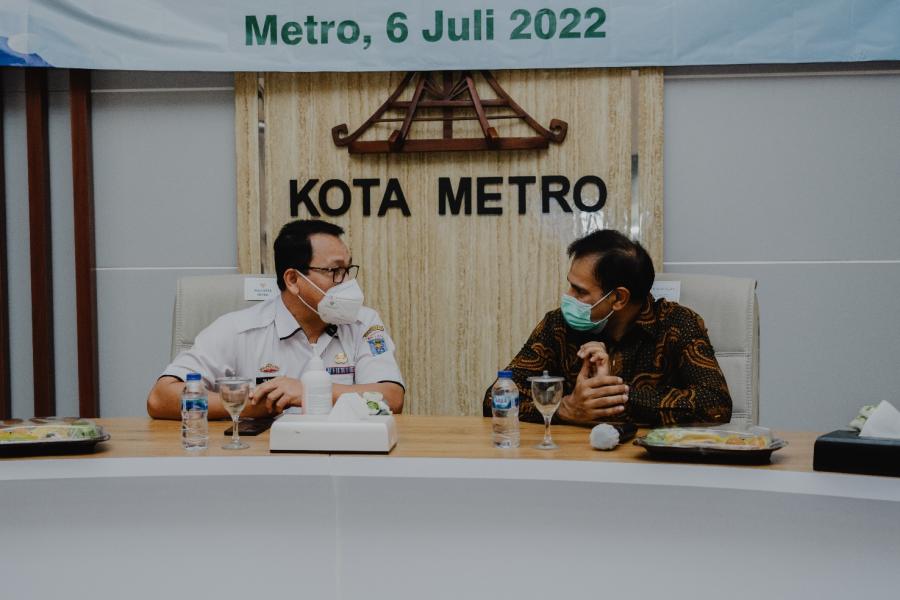
Meanwhile, Bandar Lampung City Government has also stated their commitment to replicate WASH FIT in other Puskesmas. In this city, the Puskesmas have been asked to revise their Budget and Business Plan for 2023 to include a budget for WASH improvements.
Replication plans do not only come from cities of Bandar Lampung and Metro, but also from neighbouring South Lampung District.
With their gained knowledge, staff of the nine pilot Puskesmas will act as agents of change, spreading their knowledge as tutors for other Puskesmas in the region and beyond.
***
WASH FIT is supported by the Australian Government and implemented by WHO.
This article is originally published in the WHO Indonesia's website
Written by






